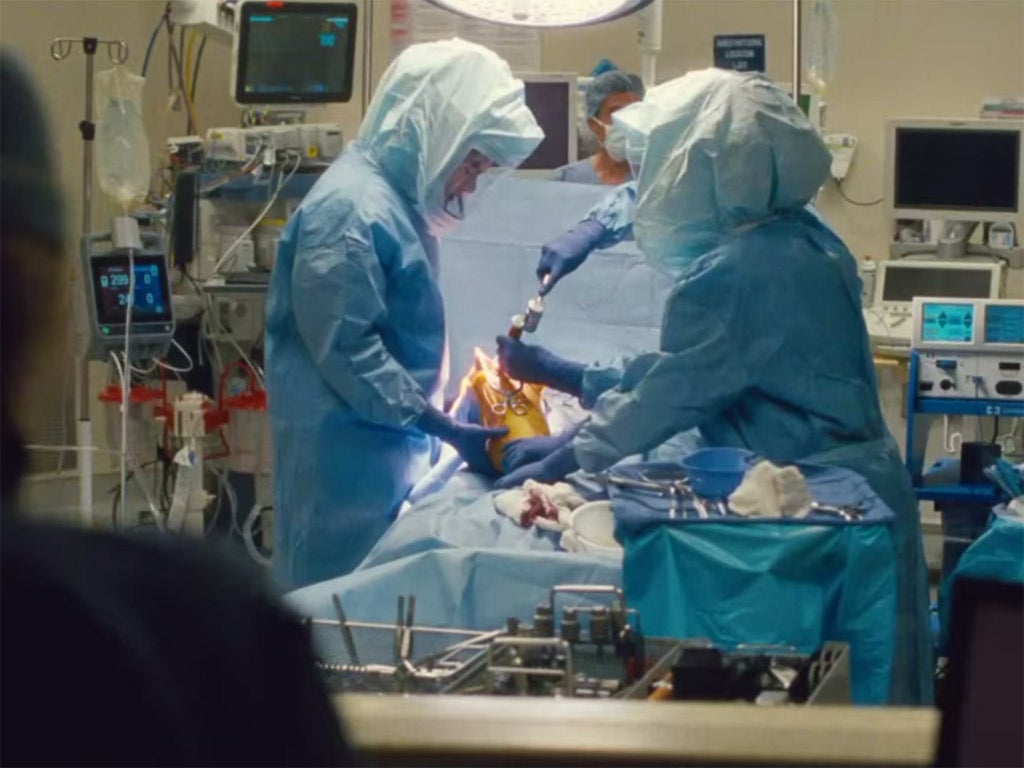Bribing GPs not to refer patients is lunacy – without multiple referrals I could have died
This new NHS measure puts lives at risk merely to incentivise doctors to land personal windfalls

Your support helps us to tell the story
From reproductive rights to climate change to Big Tech, The Independent is on the ground when the story is developing. Whether it's investigating the financials of Elon Musk's pro-Trump PAC or producing our latest documentary, 'The A Word', which shines a light on the American women fighting for reproductive rights, we know how important it is to parse out the facts from the messaging.
At such a critical moment in US history, we need reporters on the ground. Your donation allows us to keep sending journalists to speak to both sides of the story.
The Independent is trusted by Americans across the entire political spectrum. And unlike many other quality news outlets, we choose not to lock Americans out of our reporting and analysis with paywalls. We believe quality journalism should be available to everyone, paid for by those who can afford it.
Your support makes all the difference.I was more than a little concerned to read that the government is offering to pay doctors thousands to reduce the number of patients they send to hospital. Why? Because it's unlikely I would be around to write this piece today.
There's no doubt I have cost the NHS thousands over the years; I have been a huge drain on its resources. Back in 1998, as a spritely 25-year-old, I started to suffer from acute stomach pains and diarrhoea. For a while I dismissed the possibility of actually being properly ill and took the associated weight loss as a positive.
When things didn't get better over a period of months, however, I went to see my GP. Fortunately for me, although he suspected I simply had a bad case of irritable bowel syndrome, he didn't want to take any chances and immediately referred me to see a gastroenterologist at the local hospital. After a series of x-rays, scans, blood tests and stool examinations the diagnosis was quite clear – I had Crohn's disease.
Now the thing about Crohn's is that it's a chronic illness, there is no known cure. It is a condition that has to be managed – usually through drugs and sometimes through surgery. For a while things can be under control and the symptoms go away, but they are always likely to flare up again.
Roll on 15 years to the summer of 2013. I had developed a fractious relationship with my condition. Much of the time I lived in denial that I needed to look after myself. What kept me on track were annual appointments with the consultant at the hospital and medication from the GP. Contact was made with my consultant, the gastroenterology department took swift action and an appointment was made for a CT scan. It turned out to be the most important referral of my life.
While there was no doubt the Crohn's was a cause for concern, the scan also picked up a cloudy area that had formed on my right kidney, quickly diagnosed as cancer.
In the course of a remarkable few weeks that I still remember little about, I went from planning a family holiday for my 40th birthday to recovering from a nephrectomy that left with me with one kidney but no sign of the cancer. Such vigilant and prompt action from the NHS meant it had been contained.
The following months were not straight forward. On discharge from hospital I suffered a number of setbacks. My wound became infected and burst and I developed stones in my remaining kidney.
Just as I thought I was finally making a recovery, things hit rock bottom. An abscess caused by the Crohn's had developed in my bowel and effectively blocked it. At the time I had no idea what was happening to me but the GP took one look at the agony I was in and back again I went to hospital, this time for emergency surgery resulted in a large section of my intestines being removed and an illeostomy formed.
So you see, I have singlehandedly cost the NHS thousands and I am eternally grateful that money was never a factor in weighing up the various GP referrals, consultant visits, operations, hospital stays, drugs and care I have received since. If it had, who knows where I would be today?
Given the current pressures on the health service it is understandable why CCGs are looking at 'radical' solutions to get around a situation that is deteriorating by the month. But to reduce waiting lists by effectively bribing GPs not to refer patients to hospital is cynical and callous.
Just a single death as a result would be an unnecessary and avoidable waste. Those involved at a local and national level need to get their priorities straight and make sure people continue to be referred based on a doctor's expert knowledge. Not based on whether it fits with that month's spreadsheet.
Join our commenting forum
Join thought-provoking conversations, follow other Independent readers and see their replies
0Comments